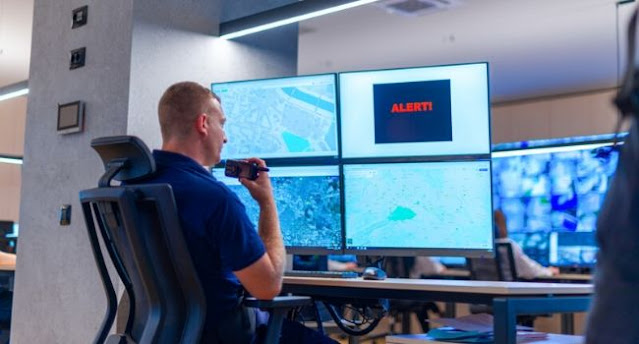Tips to keep Business safe from Cybercrime | Antivirus Software


If you've ever wondered if it's safe to use a public WiFi network, you're not alone. Six in ten respondents believe public WiFi is riskier than using a public bathroom, according to the Norton Cybersecurity Insights report. And you're right. You risk your personal data and anonymity if you browse or transact on an unsecured public WLAN. Therefore, a virtual private network, or VPN for short, is an absolute requirement for anyone who cares about their privacy and online Total security.
A virtual private network, it protects your device's privacy and anonymity by creating a private network within a public Internet connection. The VPN hides your IP address so that your online activities are virtually untraceable. Even more important that the VPN establishes a secure and encrypted connection that guarantees even greater privacy than a secure WiFi hotspot.
How often have you checked your email or bank account while standing in line at the counter or sitting in a doctor's waiting room? If you weren't on a private, password-protected WiFi network, any data you sent or received could have been easily intercepted by a stranger.
The encryption and anonymity of a VPN network protect your online activities, such as sending an email, shopping online, or paying the bills. A VPN also helps you browse the internet anonymously.
A VPN generates a data tunnel between y'all's local network and an exit node in one more location that may be thousands of miles away. It gives the impression that you are somewhere else. This makes the VPN especially useful for people who live in a country that censors access to certain websites. You can also use your favorite apps and websites anywhere in the world without hesitation, just like being at home.
The best way to protect yourself when using a public WiFi network is to use a VPN solution, e. B. Norton Secure VPN, which is compatible with smartphones and tablets (Android and iOS), as well as Windows PC and Mac. Here are some questions to ask yourself when choosing the right VPN provider.
Does the provider respect your privacy? Using a VPN is there to protect your privacy, so it is absolutely important that the VPN provider respects this as well. In principle, the provider should not track or record your online activities.
Are you working with the latest protocol? protocols like PPTP is less secure than other protocols like OpenVPN.
Are there data limits? Depending on your internet usage habit, bandwidth becomes a crucial factor. So, make sure you can use full and unlimited bandwidth without restricting the volume of data. Keep in mind that with free providers, you will have to accept frequent advertising instead.
Where are the servers located? Decide which server locations are important to you. If you want to act like you're in a certain location, make sure there's a server in that country.
Can you configure VPN access on multiple devices? The average private user works with three to five devices. Ideally, you should be able to use your VPN access on all devices at the same time.
What if the VPN is? Make sure your supplier implements a circuit breaker system in the event of a system failure. This means that your connection will be automatically blocked and will no longer function as an insecure Internet connection in the event of a system failure.
There are few things to consider when choosing the right VPN providers. So, do your own research to find the best solution for you. No matter which VPN provider you choose, you can be sure that such access offers much more Total security, privacy, and anonymity than a public WiFi hotspot.
Comments
Post a Comment